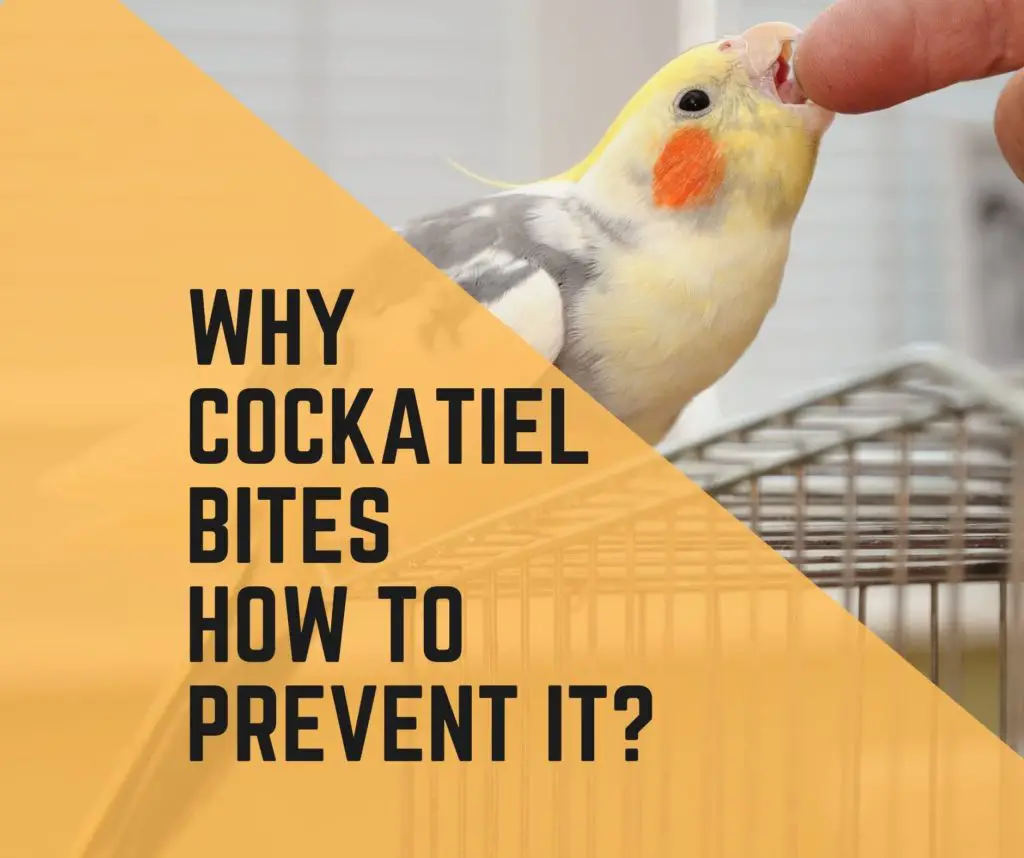If a Cockatiel bites you, it’s not because it dislikes you but because biting expresses frustration or dissatisfaction over something else.
When bitten, the first thing to do is retrieve your hand or whichever part with as minor damage as possible.
10 Ways to Prevent Your Cockatiel From Biting
You can do this by moving the part the bird is holding onto closer to its body, making it highly inconvenient for the bird to continue biting and forcing it to let go.
Don’t ever beat the bird:
Because if you do, you will reach an irredeemable situation.
The cause will be as good as a loss. Some trainers suggest that you give the bird “Time Out”.
Give it a stick to bite on, or use a towel:
if required and move the bird to a cage other than its regular cage kept in another solitary portion of the house and keep it there for about
10-15 minutes with nothing or no one to interact with.
Subsequently, look for reasons for the bird’s aggressive behaviour.
Its biting can be because of any number of reasons.
Feed, water, air, light, sleep, exercise, cage placement, and so on.
Monitor Dissatisfaction reasons:
If your pet is a happily satisfied bird, there is no reason for it to bite.
Make sure that all these things are in order. Don’t ever allow the bird to bite you.
Follow a proper step-up routine:
Think about the possible opportunities. Perhaps the time you try the “step-up.”
When the bird is on its favourite perch, it will be tempted to bite you.
This can be avoided properly if you go about the “step-up” routine.
Take your hand to the bird from below to just the right height while maintaining eye contact with it.
Use a coaxing/congratulatory tone:
But when you have to be firm, let the bird know your displeasure from the tone of your voice. Do not shout at the bird.
Another way of not allowing the bird to bite is to read its mood.
Sometimes, it will not be in the mood for reasons best known to the bird.
Increase interaction with your pet bird:
Anyone who regularly interacts with the bird can see this easily.
At such times let the bird alone. It’s only when you force the bird to do things that it does not want to, it will resort to biting.
Biting does not come naturally to the bird. In the wild, they don’t bite each other.
They do show displeasure in their natural habitat by raising their crown feathers or by growling or feigning an attack.
They don’t bite each other:
Even this show of aggression is only when their territory or nest is threatened.
Even in captivity, most birds show displeasure through body language.
This happens when the bird is off-colour or feels threatened.
In such situations, it’s best to leave the bird alone and try to locate the cause of its displeasure.
Myriad reasons:
Biting behaviour in Cockatiels can be because of myriad reasons.
You may not be able to put a finger on one specific reason and say, “this is it!”.
Start the “step up” and “step down” commands when the bird is still young and is still being hand-fed.
Create a relationship with the bird.
Make affection mutual. Fulfil all the bird’s basic needs.
Read the bird’s moods and never give it the opportunity to bite.
Hope this info will help you create a better relationship with your cockatiel.

Hi, There and Welcome to BirdsNews.com, is here to help you learn and care about pet birds. and this blog is a journal of everything I’ve learned.

